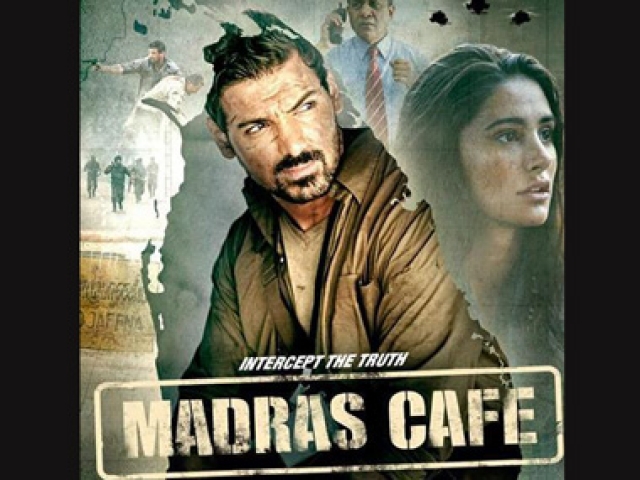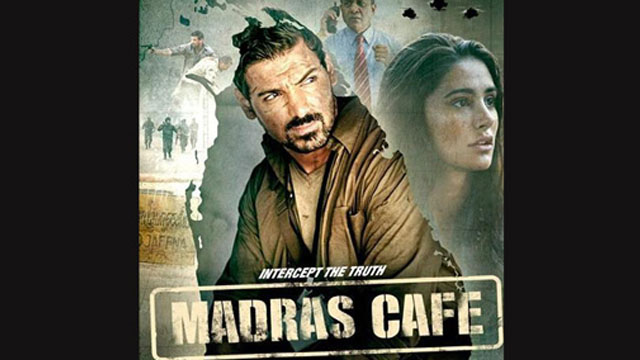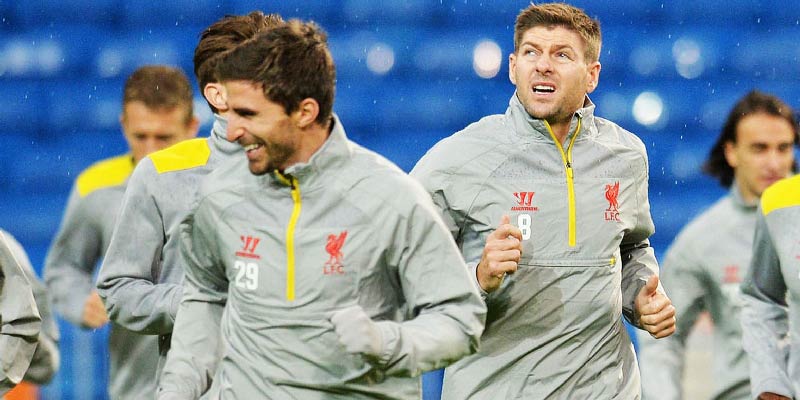As members of the Tamil activist group Naam Tamizhar managed to block the screening of Madras Cafe in Tamil Nadu, the rest of the country still managed to catch Shoojit Sircar’s latest, starring John Abraham and Nargis Fakhri. The problem with pre-release controversies is that when someone declares a film to be offensive and politically problematic in advance, as a viewer you begin to look for every small error that might suggest the film’s moral bankruptcy.

Director: Shoojit Sircar
Cast: John Abraham, Nargis Fakhri, Siddharth Basu
Rating: 2.5
As members of the Tamil activist group Naam Tamizhar managed to block the screening of Madras Cafe in Tamil Nadu, the rest of the country still managed to catch Shoojit Sircar’s latest, starring John Abraham and Nargis Fakhri. The problem with pre-release controversies is that when someone declares a film to be offensive and politically problematic in advance, as a viewer you begin to look for every small error that might suggest the film’s moral bankruptcy. I found myself doing the same and at several points I felt that the film seemed to tread very close to becoming a thriller that demarcated its black and whites very clearly. Anna (Ajay Rathnam) is quite obviously modelled on LTTE leader Prabhakaran and is often criticised in the film for being a megalomaniac, hell bent on sacrificing human lives just to have his way. The naive nationalist zeal with which special army officer Vikram Singh (John Abraham) and senior RAW bureaucrat Robin Dutt (Siddharth Basu) approach the Sri Lankan civil war situation is most bizarre. In one scene Dutt wonders if they have a Vietnam on their hands and it becomes quite difficult to disagree with him on that. The film doesn’t quite delve into why and how Indian military forces became embroiled in the conflict in the island, and instead takes off from the year 1987 after which India’s mission was to break up the LTTE dominance in Sri Lanka and conduct peaceful elections. If it had in fact spoken about India’s desire to interfere in its neighbour’s affairs so as to project itself as superior, maybe the film would have gone on to become truly extraordinary.
Keeping things simple, Singh is packed off to Jaffna where he must negotiate with the LTTE and attempt to break it from within. What follows is a series of whirlwind episodes of conspiracy, intrigue, backstabbing and mass murder that end with the Indian forces’ eventual embarrassing retreat from Sri Lanka. The second half of the film then follows the threat to the ‘Ex-Prime Minister’s life (an obvious allusion to Rajiv Gandhi).
Abraham as a no nonsense army officer haunted by the scars of war is effective, registering his best performance till date. The best thing about the film is perhaps Kamaljeet Negi’s cinematography, capturing some terribly poignant and moving images of a people displaced.
Though one must commend Sircar’s intelligent use of the Sri Lankan civil war situation to weave an engaging and at points thoroughly engrossing story, one is left slightly discontented with the shifty and almost apologetic stand it takes on the political questions the film itself raises. It seems the filmmaker was careful not to piss off either the Congress or the Sri Lankan governments and in effect couldn’t make up his mind about who the real terrorists were. Overall, a well made thriller that had the potential to be much, much more.





